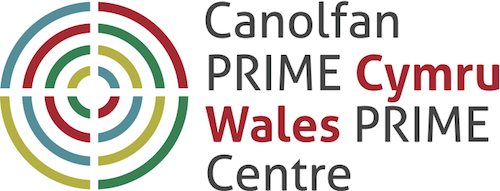 Title
Title
HEAR2 - Health Experiences of Asylum seekers and Refugees: how well are their interpretation needs met?
Contact details
Dr Ashra Khanom
Senior Research Officer
a.khanom@swansea.ac.uk
Principal / Lead investigator
Chief Investigator: Dr Gillian Richardson
Public Health Wales
Gillian.Richardson002@gov.wales
Co-investigators / research team
Helen Snooks, Swansea University; Rabeea’h Waseem Aslam, Swansea University; Alan Watkins, Swansea University; Ann John, Swansea University; Alison Porter, Swansea University; Ashrafunnessa Khanom, Swansea University; Rebecca Fogarty, Public Health Wales; Solmaz Safari (PPI), Swansea University; Ian Russell, Swansea University; Aloysius Siriwardena Niroshan, University of Lincoln; Bernadette Sewell, Swansea University; Faruk Ogut, Displaced People In Action; Alicia Evans, British Red Cross; Sam Baig, Wales Interpretation and Translation Service; Jean Saunders, Swansea Bay UHB; Heledd Jones, Butetown Medical Practice; Lauren Couzens, Public Health Wales.
Type of study
Mixed methods study
Summary
People who are classified as Asylum Seekers or Refugees in the UK are entitled to NHS health care, including interpretation services for their language needs. Preliminary studies have reported that interpretation is often not offered or not provided in the best language for the individual. One of the key findings of the HEAR study (Health Experiences of Asylum Seekers and Refugees in Wales), carried out by this research team, was the need to improve interpretation within healthcare provision for Asylum Seekers and Refugees (see HEAR Technical Report).
In HEAR 2 we aim to:
- Provide information about demand and patient experience; and evaluate the quality of interpretation services delivered in primary and emergency care in Wales
- Assess the feasibility of a comprehensive evaluation of interpretation services in these settings across the UK, including a description of currently commissioned interpretation services
Methods: We will use mixed methods to meet our study aims, in five participating sites in primary and emergency care.
We will carry out an online survey of NHS commissioners to understand what service models are in place across the UK for the provision of interpretation.
We will collect data from our participating sites about use of interpretation services by Asylum Seekers and Refugees, and the quality of service provided. We will test two methods for collecting data from patients: 1) postal survey from their healthcare provider with translated questionnaires available; 2) an approach using ‘peer researchers’ – themselves Asylum Seekers or Refugees - to administer questionnaires in community settings.
We will interview people who act as lead for patient experience from each participating service and carry out focus groups or interviews with doctors, nurses, paramedics, and managers from participating services as well as providers of interpretation.
Finally, we will assess the quality of data available to identify this population, so that we can assess the feasibility of a full evaluation of interpretation services in primary and emergency care across the UK.
How could this research potentially benefit patients?
This study will help to improve the care that this vulnerable group receives, by describing current need and services offered. In addition, if we demonstrate feasibility, we will submit a proposal to the National Institute of Health Research, to carry out a comprehensive evaluation of interpretation services in primary and emergency healthcare across the UK.
Public / patient involvement
Design of the Research
Two PPI members have contributed to this study through various stages of its development, from the initial outline bid to full and successful application to the HCRW RfPPB Programme.
- Management of the Research
- We intend that both PPI co-applicants retain their involvement with the study, via membership of the Research Management Group (RMG). In this capacity, they will be actively involved in all aspects of project management, contributing to decisions about data collection, interpretation, and dissemination.
- We will convene an independent Study Steering Committee (SSC), which will meet three times during the life of the study project to provide oversight on all aspects of study management and conduct, including scrutiny of available study data. We have invited two further public contributors to join this SSC.
- We will also convene a Participant Advisory Group of 6-8 individuals recruited through community groups, support agencies and third sector networks. The target population for the interpretation services for asylum seekers and refugees is diverse in terms of conditions and care needs. While we recognise recruitment challenges, we will seek to ensure that public contributors within the study match this population. The two RMG PPI will attend and link between our wider public forum and the research team with two-way communication and reporting.
Undertaking the research
Peer-researchers will be actively involved in conducting the survey of asylum seekers and refugees.
Analysis of Results and Dissemination of Findings
Patients and members of the public will help us to interpret and disseminate findings through RMG and PAG activities. In keeping with the principles of co-production, our public contributors will be actively involved in the presentation of findings to
Funder
Health and Care Research Wales Research for Patient and Public Benefit (RfPPB) scheme
Grant value
Research grant: £229,988.00
Service support cost: £24,000.00
Start date
01/10/2020
End date
30/09/2022
Further information (e.g. related web link)
As part of the HEAR2 study, peer researchers who are asylum seekers or refugees themselves, will be collecting data from others in the community. As well as working with our team, some members of the group have been involved in a BBC documentary telling the stories of some of those who have come to Wales seeking safety, as well as producing a podcast about their experiences.
Outputs generated (Reports / Publications / Impact)
Impact
To follow
HEAR 2 - Participant Information Sheet
Download the HEAR 2 Participant Information Sheet here.

